- Home
- Gordon Korman
The 6th Grade Nickname Game Page 9
The 6th Grade Nickname Game Read online
Page 9
“Why didn’t we think of it before?” Jeff mused.
“We did,” replied Wiley. “And we junked it. We were idiots.”
“D. D. is smarter than us,” Jeff agreed.
“Cockroaches are smarter than us,” Wiley amended.
“Parasites.”
“Plants.”
Wiley pointed. “See that rock over there? That guy is a genius compared to us.”
He put an arm around Jeff’s shoulders, and the two nicknamers walked home without another word.
THE DIM BULBS of 6B scored in the top one percent on the State Reading Assessment. It was the greatest improvement in the history of the test. Mr. Hughes was signed to a full-time teaching contract at Old Orchard Public School. After all, any teacher who could bring his class from worst to first in a few short weeks was a treasure for his school.
Mr. Hughes never found out that the 6B marathon had saved his job.
“And he never will,” Cassandra decided, “as long as we keep on reading. He’ll only get suspicious if we stop.”
By this time reading had become almost a way of life in Mr. Hughes’s class. Cassandra’s plan was going to be a piece of cake.
Of course, no one was calling her Cassandra anymore. Wiley and Jeff worked their magic, and the name Carrot-top caught on like a brush fire. The person who liked it best was Cassandra herself. She even added a new skirt to her famous collection. It was blue denim, with Carrot-top spelled out in nail studs.
She’d worn it for the first time on a very special occasion. It was the day that she, Mike Smith, Wiley, and Jeff had released D. D. back into the wild. On the spot, the four had decided to form the Endangered Species Club at school. Wiley and Jeff were already hard at work inventing nicknames for all the endangered animals, starting with the bald eagle—Old Chrome-dome.
The nicknamers had agreed to forgive Cassandra for not believing that they had rescued D. D. first. Wiley said that one day, when they were eighty—maybe—they might even forgive her for taking Mike to the Sadie Hawkins dance.
Secretly, Jeff was grateful to Cassandra for choosing Mike. If she had invited Wiley or Jeff, the odd man out would have been devastated. The bad feelings might have ripped apart their friendship. And while Cassandra was pretty special, a friend like Wiley came around once in a hundred lifetimes.
There was only one loose end, one thing left undone.
“Snoopy—I mean, Charles,” said Wiley at recess. “We were wrong and you were right.” He took a deep breath. “Man, were you ever right!”
“So you don’t have to be Snoopy anymore,” Jeff went on. “We’ll call you whatever you say. We’ll even help spread it around so it catches on.”
“Don’t you dare!” exclaimed Charles. “I’ve got the best nickname at school—next to the Iceman, of course.”
Wiley was astonished. “But you hate being Snoopy! That’s what this was all about, remember?”
“Hah!” Charles was triumphant. “If it wasn’t for my snooping, we never would have found out that Mr. Huge was going to get fired. I saved our teacher. I’m proud to be Snoopy!”
They watched him walk off, head high.
“Well, he’s happy,” Jeff commented.
Wiley looked thoughtful. “You know, there’s got to be a better nickname for that guy.”
Jeff nodded. “We’ll start working on it right away.”
When Mr. Hughes was invited to speak at the next school board meeting, the room was packed. Everyone was anxious to hear the secrets of the star of the State Reading Assessment.
The lecture started off quietly, but soon the big teacher’s coaching instincts took over. Three minutes into his speech he was galloping up and down the stage, guzzling Gatorade, sweating and howling. 6B would have been right at home with this performance. But the school board was completely cowed.
“Any questions?” rasped Mr. Hughes after ten very loud minutes.
Shocked silence.
At last, a young teacher in the front row raised her hand. “How would you describe your approach to the reading test?”
“Picture this!” cried Mr. Hughes. “Fourth down! No time-outs! And we threw the long bomb!” To illustrate, he reared back and hurled the portable microphone through the picture window and out into the parking lot.
The president of the school board turned frantically to Mr. Doncaster. “Good heavens, man! What is he doing?”
He got the deer-in-headlights look in return. “Isn’t it obvious?” the principal replied. “He’s giving a hundred-and-ten percent.”
Turn the page to start reading!
I was thirteen the first time I saw a police officer up close. He was arresting me for driving without a license. At the time, I didn’t even know what a license was. I wasn’t too clear on what being arrested meant either.
But by then they were loading Rain onto a stretcher to rush her in for X-rays. So I barely noticed the handcuffs the officer slapped on my wrists.
“Who’s the owner of this pickup?”
“It belongs to the community,” I told him.
He made a note on a ring-bound pad. “What community? Golf club? Condo deal?”
“Garland Farm.”
He frowned. “Never heard of that one.”
Rain would have been pleased. That was the whole point of the community—to allow us to escape the money-hungry rat race of modern society. If people didn’t know us, they couldn’t find us, and we could live our lives in peace.
“It’s an alternative farm commune,” I explained.
The officer goggled at me. “Alternative—you mean like hippies?”
“Rain used to be one, back in the sixties. There were fourteen families at Garland then. Now it’s just Rain and me.” I tried to edge my way toward the nursing station. “I have to make sure she’s okay.”
He was unmoved. “Who is this Rain? According to her Social Security card, the patient’s name is Rachel Esther Rosenblatt.”
“Her name is Rain, and she’s my grandmother,” I said stiffly. “She fell out of a tree.”
He stared at his notes. “What was a sixty-seven-year-old woman doing up a tree?”
“Picking plums,” I replied defensively. “She slipped.”
“So you drove her here. At thirteen.”
“I drive all the time,” I informed him. “Rain taught me when I was eight.”
Sweat appeared on his upper lip. “And you never thought of just dialing 911?”
I regarded him blankly. “What’s nine-one-one?”
“The emergency number! On the telephone!”
I told him the truth. “I’ve talked on a telephone a couple of times. In town. But we don’t have one.”
He looked at me for what seemed like forever. “What’s your name, son?”
“Cap. It’s short for Capricorn.”
He unlocked my handcuffs. I was un-arrested.
How could an able-bodied teenager allow his grandmother to scale a plum tree? Simple. She wasn’t my grandmother at the time. She was my teacher.
I was homeschooled. That was the law. Even on a tiny farm like ours, you had to get an education. No school bus could ever make it up the rutted, snaking dirt road that led to Garland. But transportation wasn’t the only problem. If we’d been serviced by an eight-lane highway, Rain still would have handled my schooling personally. We wanted to avoid the low standards and cultural poison of a world that had lost its way.
So that’s what I was doing when Rain fell—working on a vocabulary lesson. Most of the list came from the state eighth grade curriculum: barometer, decagon, perpendicular…
I could always spot the extra words Rain threw in: non-violence, Zen Buddhism, psychedelic…
Microprocessor? I frowned at the paper on the unpainted wooden table. Was that Rain or the state? I’d never heard that term before.
I stepped out of the house, careful not to disturb my science project—the Foucault pendulum suspended from the porch roof. The tester from the educ
ation department thought it was good enough to enter in the county science fair. Too bad we didn’t believe in competition—all that emphasis on trophies and medals, the shiny symbols of an empty soul. Anyway, Rain said the whole thing was a trick to get me to go to regular school.
“If your project is excellent, it only proves that you’re getting a superior education right here with me” had been her reasoning.
I spotted her up in the tree, reaching across a limb to pick a plum. “Rain,” I called, “there’s a word I don’t under—”
And it happened. One minute she was on the branch; the next she was on the ground. I don’t even recall seeing her fall. Just the faint cry followed by the dull clunk.
“Aaah!” Whump.
“Rain!”
She was lying on her side amid the scattered plums when I pounded onto the scene. Her face was very pale. She wasn’t moving.
My terror was total. Rain was everything to me—my teacher, my family, my whole universe. Garland was a community, but we were the community—the two of us!
I knelt beside her. “Rain—are you okay? Please be okay!”
Her eyes fluttered open and focused on me. She tried to smile, but the pain contorted her expression into a grimace. “Cap—” she began faintly.
I leaped back to my feet. “I’ll get Doc Cafferty!”
Doc Cafferty lived a few miles away. He was technically a veterinarian. But he was used to working on humans, since he had six kids. He’d given me stitches once when I was eight.
She reached up a tremulous hand and gripped my arm. “We need a real doctor this time. A people doctor.”
I stared at her like she was speaking a foreign language. Doc Cafferty had filled all of Garland’s medical needs as long as I could remember.
She spelled it out. “You’re going to have to take me to the hospital.”
Rain always said that anger upsets the balance inside a person. So when you yell at somebody, you’re attacking yourself more than whoever it is you’re yelling at.
Falling out of the tree must have made her forget this. Because when the nurses finally let me in to see her, she was screaming at the doctor at top volume. “I can’t do eight weeks of rehab! I can’t do eight days!”
“You’ve got no choice,” the doctor said matter-of-factly. “You have a broken hip. It has to be pinned. After that you’ll need extensive physical therapy. It’s a long process, and you can’t ignore it just because it doesn’t fit in with your plans.”
“You’re not listening!” Rain shrilled. “I’m the caregiver to my grandson! The only caregiver!”
“What about the parents?” the doctor asked. “Where are they?”
She shook her head. “Long dead. Malaria. They were with the Peace Corps in Namibia. They gave their lives for what they believed in.”
That sounds worse than it is. But I never knew my parents except from old pictures. They left when I was little. Besides, the rule at Garland back then was that we all belonged to each other, and it didn’t matter who was related by blood. I have a few vague recollections of other people in the community when I was really young. But whether they were my parents or not, I can’t tell. Anyway, it’s impossible to miss what you never had.
I rushed to my grandmother’s bedside. “Are you okay? Is your leg all fixed up?”
She looked grave. “We’ve got a problem, Cap. And you know what we do with problems.”
“We talk it out, think it out, work it out,” I said readily. It had been that way since the very beginning of Garland in 1967, long before I was born. Now that there were only two of us, Rain still gave me a full vote. She never treated me like I was just a kid.
The doctor was growing impatient. “How about cousins? Or maybe a close friend from school?”
“I’m homeschooled,” I supplied.
The doctor sighed. “Mrs. Rosenblatt—”
“That name hasn’t applied to me for decades. You can call me Rain.”
“All right. Rain. I’m admitting you now. We’ll operate in the morning. And I’ll call social services to see what arrangements can be made for your grandson.”
That was when I started to worry about what was going to happen to me.
Also by Gordon Korman
Born to Rock
Jake, Reinvented
The Juvie Three
Maxx Comedy
No More Dead Dogs
Schooled
Son of the Mob
Son of the Mob: Hollywood Hustle
gordon korman has written more than eighty novels for young adult and middle-grade readers, including Schooled; Son of the Mob; Jake, Reinvented; No More Dead Dogs; Born to Rock; and The Juvie Three. He lives with his family on Long Island.

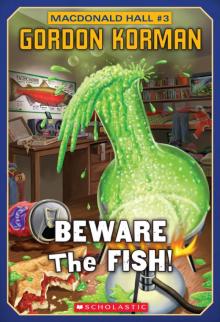 Beware the Fisj
Beware the Fisj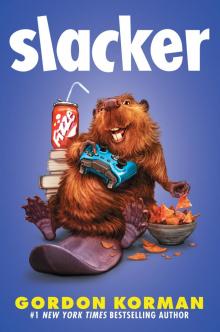 Slacker
Slacker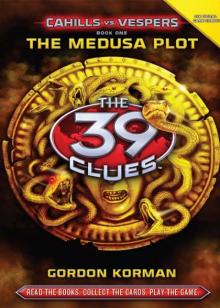 The Medusa Plot
The Medusa Plot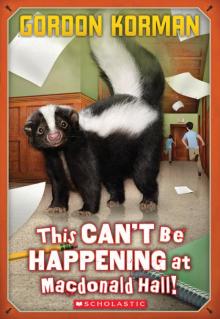 This Can't Be Happening at MacDonald Hall!
This Can't Be Happening at MacDonald Hall!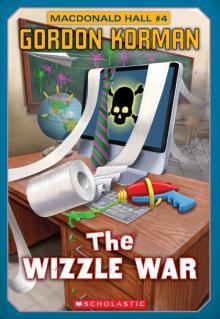 The War With Mr. Wizzle
The War With Mr. Wizzle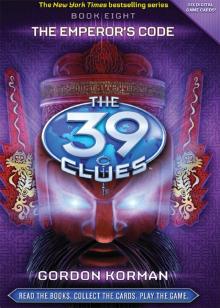 The Emperor's Code
The Emperor's Code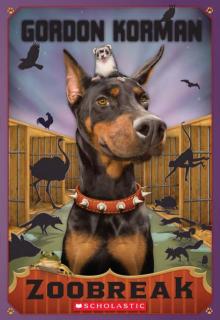 Zoobreak
Zoobreak The Danger
The Danger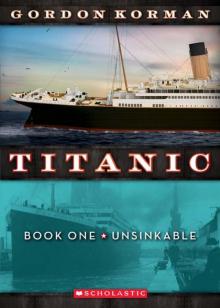 Unsinkable
Unsinkable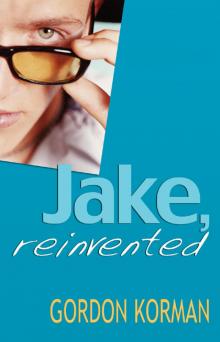 Jake, Reinvented
Jake, Reinvented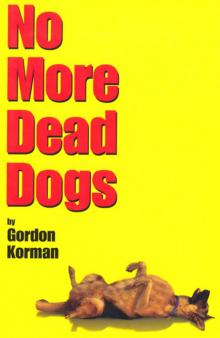 No More Dead Dogs
No More Dead Dogs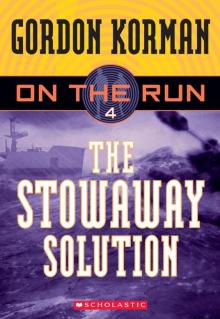 The Stowaway Solution
The Stowaway Solution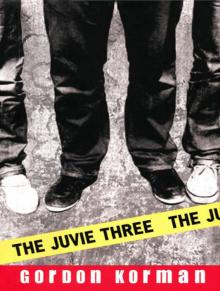 The Juvie Three
The Juvie Three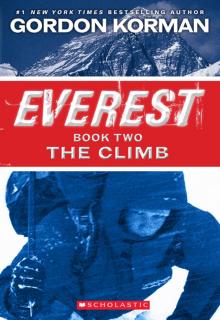 The Climb
The Climb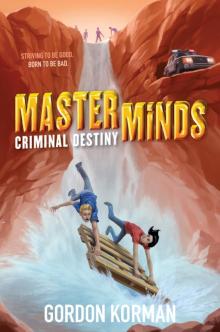 Criminal Destiny
Criminal Destiny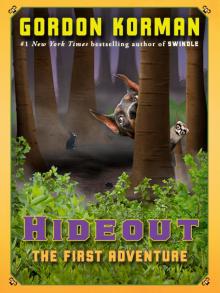 Hideout: The First Adventure
Hideout: The First Adventure Flashpoint
Flashpoint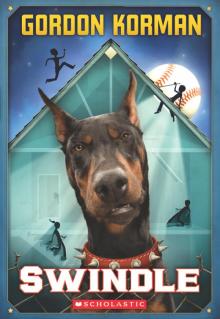 Swindle
Swindle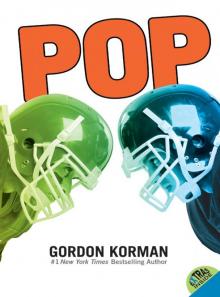 Pop
Pop The Rescue
The Rescue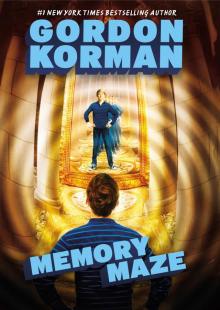 Memory Maze
Memory Maze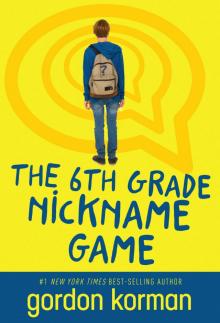 The Sixth Grade Nickname Game
The Sixth Grade Nickname Game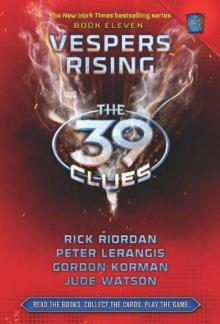 Vespers Rising
Vespers Rising Collision Course
Collision Course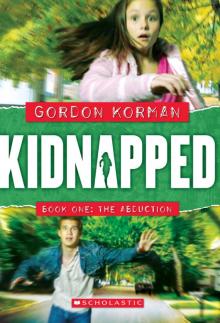 The Abduction
The Abduction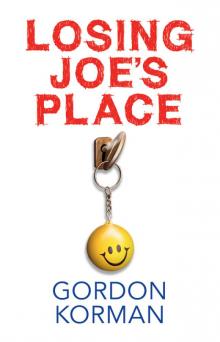 Losing Joe's Place
Losing Joe's Place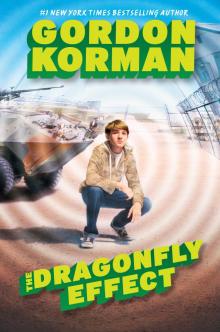 The Dragonfly Effect
The Dragonfly Effect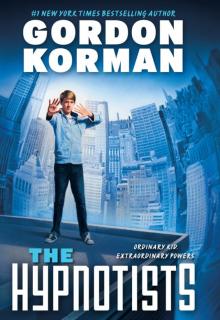 The Hypnotists
The Hypnotists Survival
Survival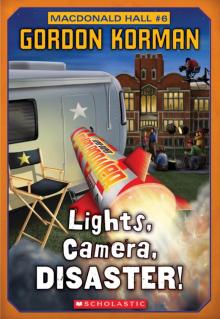 Lights, Camera, DISASTER!
Lights, Camera, DISASTER! Payback
Payback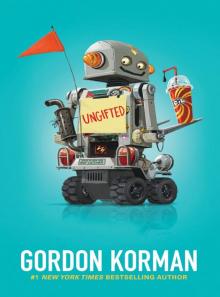 Ungifted
Ungifted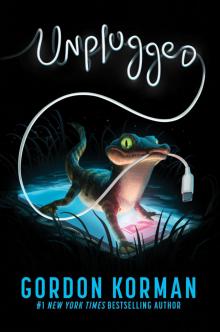 Unplugged
Unplugged Framed
Framed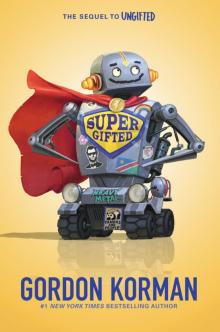 Supergifted
Supergifted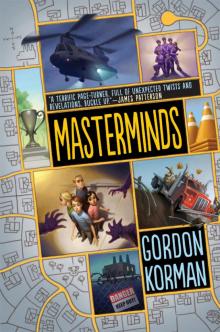 Masterminds
Masterminds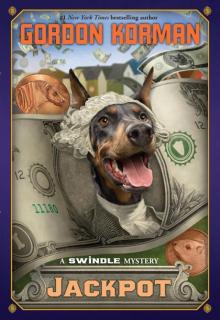 Jackpot
Jackpot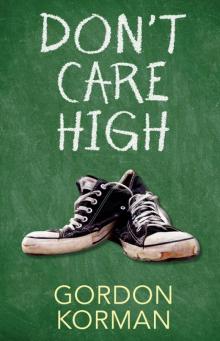 Don't Care High
Don't Care High The Deep
The Deep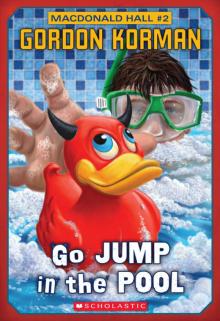 Go Jump in the Pool!
Go Jump in the Pool!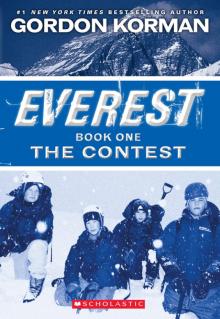 The Contest
The Contest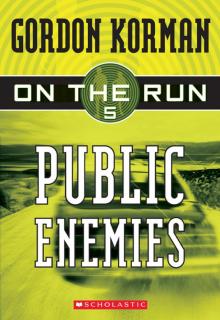 Public Enemies
Public Enemies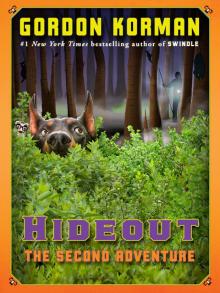 Hideout: The Second Adventure
Hideout: The Second Adventure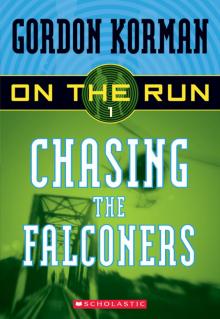 Chasing the Falconers
Chasing the Falconers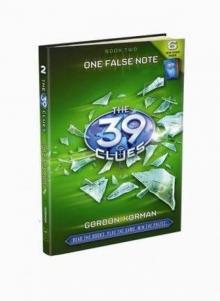 One False Note
One False Note Shipwreck
Shipwreck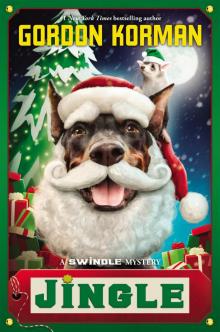 Jingle
Jingle Unleashed
Unleashed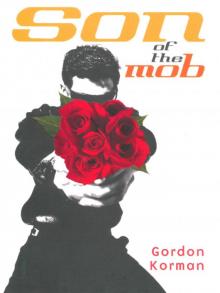 Son of the Mob
Son of the Mob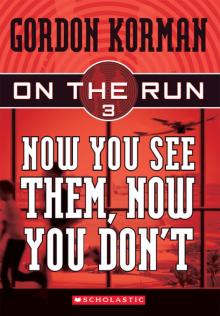 Now You See Them, Now You Don't
Now You See Them, Now You Don't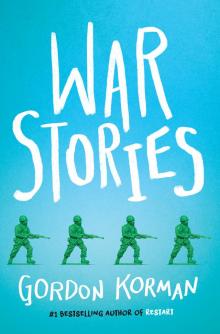 War Stories
War Stories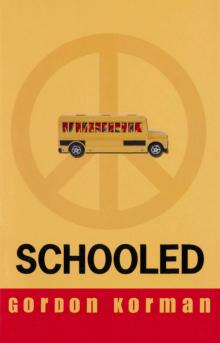 Schooled
Schooled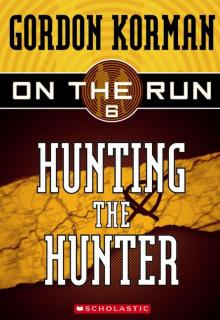 Hunting the Hunter
Hunting the Hunter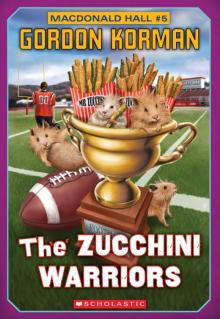 The Zucchini Warriors
The Zucchini Warriors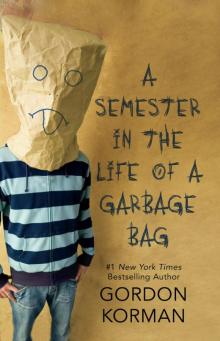 A Semester in the Life of a Garbage Bag
A Semester in the Life of a Garbage Bag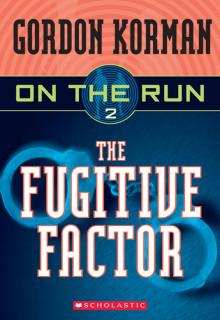 The Fugitive Factor
The Fugitive Factor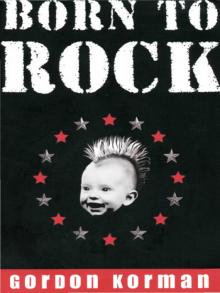 Born to Rock
Born to Rock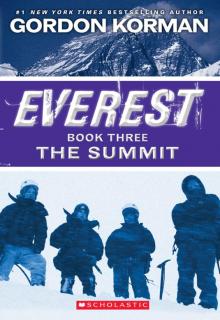 The Summit
The Summit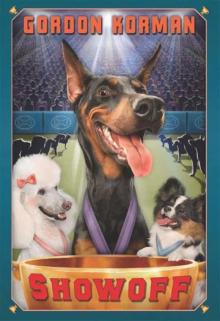 Showoff
Showoff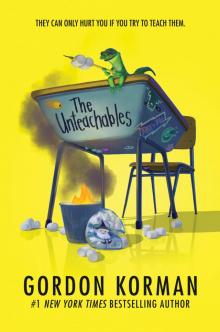 The Unteachables
The Unteachables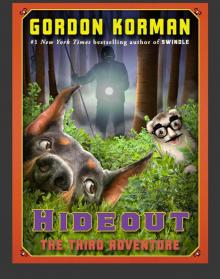 The Third Adventure
The Third Adventure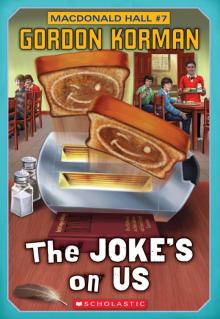 The Joke's on Us
The Joke's on Us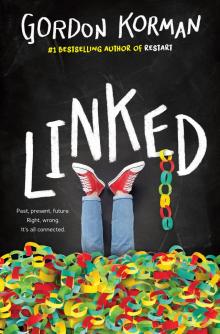 Linked
Linked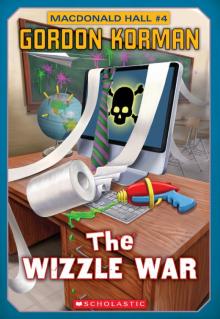 The Wizzle War
The Wizzle War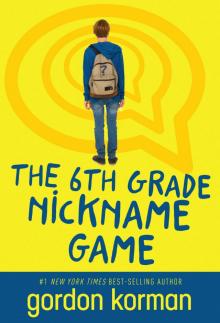 The 6th Grade Nickname Game
The 6th Grade Nickname Game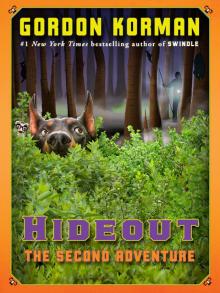 The Second Adventure
The Second Adventure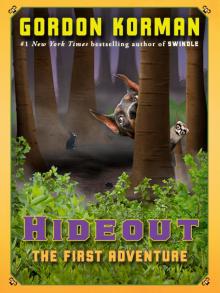 The First Adventure
The First Adventure![39 Clues : Cahills vs. Vespers [01] The Medusa Plot Read online](http://i1.bookreadfree.com/i2/04/10/39_clues_cahills_vs_vespers_01_the_medusa_plot_preview.jpg) 39 Clues : Cahills vs. Vespers [01] The Medusa Plot
39 Clues : Cahills vs. Vespers [01] The Medusa Plot